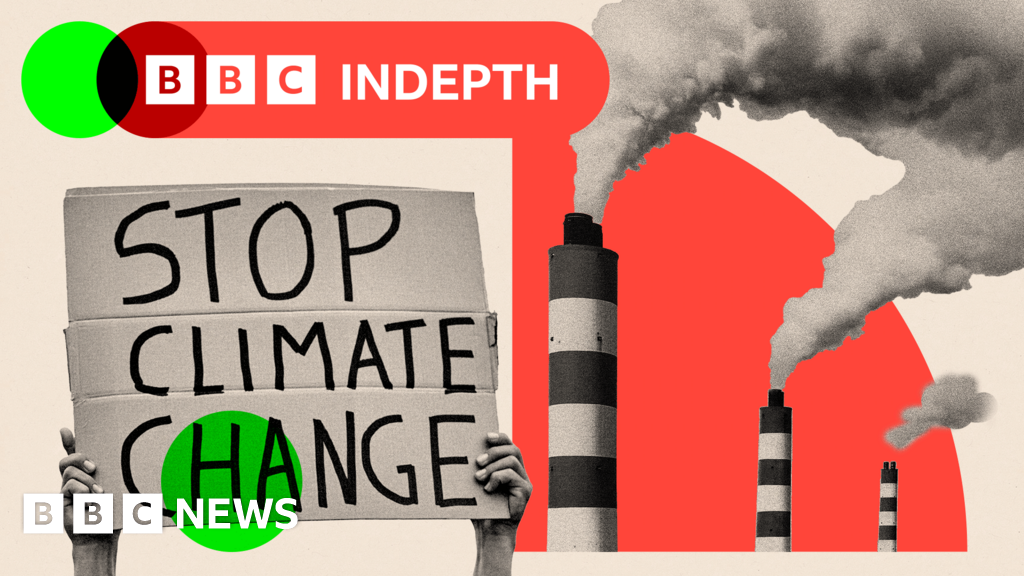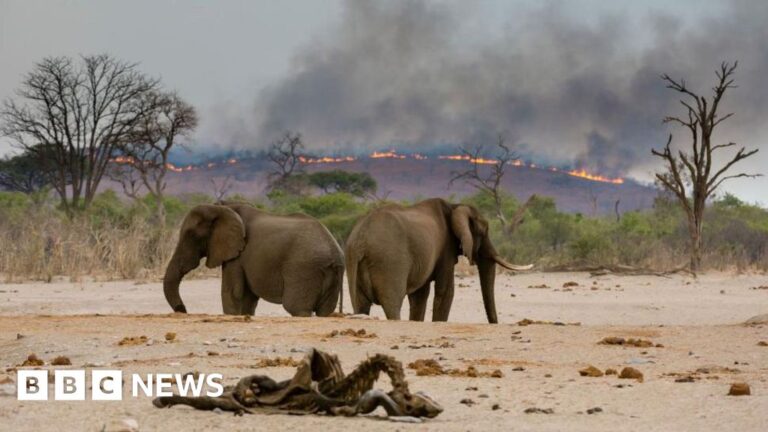The WhatsApp message was from the chief negotiator of one of the most powerful countries at the COP climate gathering. Could I stop by for a chat, he asked.
As his team hunched over computers eating takeaway pizza, he raged about the obstructionist behaviour of many of the other teams at the conference.
So far, so normal. Others had been saying versions of this all week – that this was the worst COP ever; that negotiating texts, which are meant to get smaller as deadlines approached, were in fact ballooning; that COP in its current form might be dead in the water…
Looming over it all was the prospect of US president-elect Donald Trump withdrawing the US from the COP process when he takes office for a second time. He has called climate action a “scam” and, at his victory celebration in West Palm Beach earlier this month, vowed to boost US oil production beyond its current record levels, saying, “We have more liquid gold than any country in the world”.
But there was one positive: China.
“It’s the only bright spot in all of this is,” the chief negotiator told me. Not only was its negotiating style markedly different to previous years, but he also observed that, as he puts it, “China could be stepping forward.”
Another sign that this may be the case came at the start of the conference, when China made public details of its climate funding. Traditionally, China has released minimal information about its climate policies and plans, so it came as a surprise when, for the first time, officials said they have paid developing countries more than $24 billion for climate action since 2016.
That’s serious money, almost nobody else is at that level,” one COP insider told me.
It is a “notable signal”, says Li Shuo, a director of China Climate Hub, “as it’s the first time that the Chinese government has laid out a clear figure in terms of how much they have been providing.”
If these are indeed signs that China plans to take a more central role in the future, just as the US is stepping back, it would mark a tectonic shift in the COP process.
Historically, Western countries – particularly the US and EU – have provided the momentum, cheered on by smaller climate-vulnerable nations. The difference in the way the talks play out if China steps forward will be marked.
Jonathan Pershing, program director of environment at the William and Flora Hewlett Foundation, has been to every COP and understands better than most the behind-the-scenes bartering, bullying and brinkmanship that makes or breaks deals at summits. He says that China won’t lead from the front, like the US and Europe.
“They’re more cautious players than that. It may be that they’re leading with Chinese characteristics, which is what they might say themselves.”
This echoes how Deng Xiaoping, president in the early 1980s, described his economic reforms, which catapulted the country’s economic growth into double figures: “socialism with Chinese characteristics”.
Pershing suggests that China is likely to help drive the COP process forward by discreetly intervening to unblock disputes. Most of this effort will take place behind closed doors, he believes, but is likely to include urging developing and developed countries to increase their ambition – and the flow of cash.
However China may not be entirely helpful on some of the challenges that slow the process, such as instances when countries use COP as a stage to champion their own interests.
One of the biggest blockers in Baku was said to be Saudi Arabia, which heads up a group of fossil fuel producing countries that want to slow the transition to renewables. As a big consumer of fossil fuels, China has often thrown its weight behind them in the past, such as by resisting the UK’s effort to get agreement to phase out coal at COP26 in Glasgow.
There have been some other occasions in this year’s talks that indicate how China’s approach is already shifting.
Earlier this year, Chinese President Xi Jinping said that solar panels, EVs and batteries are the “new trio” at the heart of the Chinese economy.
It is the huge investments China has made in renewable technologies and the massive economies of scale that it has created that have also driven down renewable costs year after year – the challenge it faces now is finding new markets to sell it into.
The developing world is where the demand is set to boom. These countries will account for two-thirds of the renewable market within 10 years, according to a recent report by a group of economists tasked by the UN with calculating the costs of the energy transition.
Pakistan imported 13 gigawatts (GW) of solar panels in the first six months of this year alone, according to research by Bloomberg NEF. To put that in context, the UK has 17GW of installed solar.
Shipping clean tech to emerging economies dovetails with another of China’s policies: its “Belt and Road Initiative,” an effort to develop new trade routes, including roads, railways, ports and airports, to connect with the rest of the world.
China has spent more than a trillion dollars on the project, according to the World Economic Forum. Last week, President Xi opened a new port on the coast of Peru.
Which begins to explain why, as Prof Jacobs sees it, while the US may withdraw, China looks like it might be stepping up. “It now sees its best interest as encouraging other countries to also cut their emissions by using Chinese technologies and equipment.”
Ultimately, though, regardless of whether this plays out, there is cause for hope, according to some well-placed observers. Camilla Born, who has been part of the UK’s negotiating team and helped run COP26 in Glasgow, believes that the future talks will be determined by the new economics of energy, not the politics of meetings.
“This isn’t just about an idea of how to deal with climate change anymore,” she argues. “This is about investments, about money – it’s people’s jobs, it’s new technologies. The conversations are different.”
It is, after all, the biggest revolution in energy since the start of the industrial revolution. And regardless of which superpower takes the lead, or if the US is out of the game for four years, it’s unlikely that anyone will want to miss out on such a vast market.
Source link




